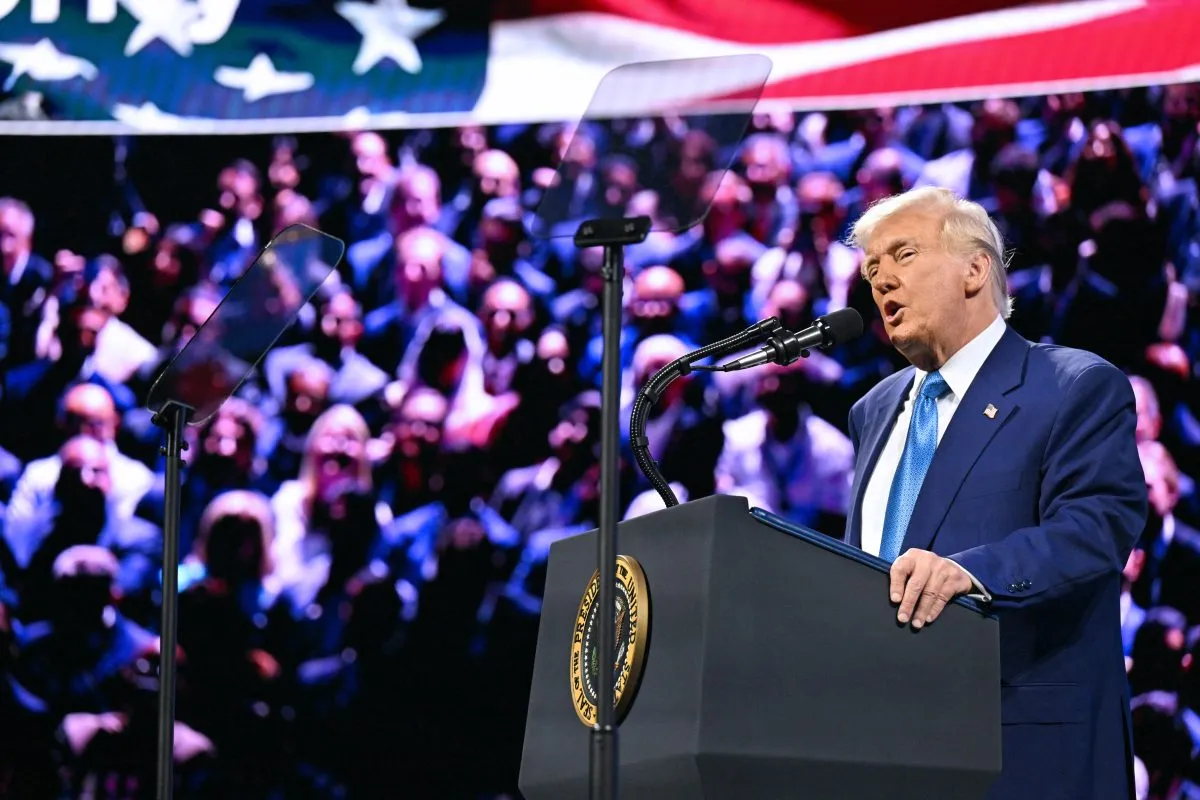At the 2024 African Growth and Opportunity Act (AGOA) Forum in Washington DC, Katherine Tai, US trade representative at the time, recounted her experience at the Made in Africa Exhibition near Soweto, South Africa. “I saw first hand the variety of products from massive drones to delicious food stuffs, beautiful jewellery, really excellent Peri Peri sauce as well.
“I could see the pride the business owners have in the things that they are making, and for me it was an incredibly important reminder of the impact that AGOA has on real people and real lives,” she said.
The African Growth and Opportunity Act, which provides tariff-free access to the US market for African manufacturers, has been at the heart of US trade policy towards Africa since its approval by Congress in May 2000.
The agreement allows eligible African countries to export over 1,800 products duty-free to the US and has historically enjoyed bipartisan support in Congress. Its benefits have been extended to countries that comply with eligibility requirements, which include progress towards a market-based economy, the rule of law and political pluralism.
But with Donald Trump now serving his second term as president of the United States and his antipathy towards free trade redoubled – not to mention a spike in tensions with beneficiary country South Africa – there are fears that the act, which is set to expire on September 30, 2025, is nearing the end of the road.
How effective is AGOA?
Some analysts argue that AGOA’s impact on Africa’s external trade flows is overstated. Total exports under AGOA amounted to just 0.5% of regional GDP in 2023, says a note from Capital Economics. The two countries most reliant on AGOA-facilitated trade, Nigeria and South Africa, shipped only around 1% of GDP worth of exports to the US through the act last year.
While Africa’s reliance on the act has diminished – around 33% of total exports to the US were shipped under AGOA last year compared to the peak of 81% in 2008 – Africa has been developing stronger trade ties with the EU and China.
But for industries that benefit from AGOA – such as the South African automotive industry or the apparel industry in several nations – the end of the act could be devastating. In 2023 clothing exports from Africa to the US totalled $1.2bn, with over 96% benefiting from AGOA’s duty-free exemptions. Kenya led the way as the top apparel exporter under the programme.
The impact of losing AGOA benefits became clear when Ethiopia was removed due to alleged human rights violations during the conflict in the Tigray region in 2022. PVH, one of the largest US apparel manufacturers, closed a manufacturing facility in Ethiopia as a consequence, and other firms reportedly left the market. Local reports said that the withdrawal of AGOA privileges led to the loss of thousands of jobs, predominantly among women who make up the majority of the industry’s workforce.
In South Africa the repeal of the act could have a multiplier effect, says Menzi Ndhlovu, senior country risk analyst at Signal Risk.
“While it is true that there’s not a major contribution to GDP in both countries, if you consider the supply chain effect with the industries that are not only massive employers, but also massive consumers, and normally in rural areas, it will be quite a big knock to lose it.”
Witney Schneidman, non-resident senior fellow with the Africa Growth Initiative in the Global Economy and Development programme at Brookings and a former US deputy assistant secretary of state for African affairs who helped design the act, agrees that AGOA’s loss would be felt keenly in South Africa.
“Through the export of autos and citrus, South Africa’s numbers outrank everyone else’s in non-petroleum products by a multiple of five. That’s a lot of jobs here in South Africa. And there’s a lot of jobs in the region that feed into the automobile process, the making of leather seats, the wiring of the seats for example. It would hurt; it would sting for a country that has a huge unemployment crisis.”
Uncertainty already weighing on impact
The uncertainty around the act, which last received a ten-year extension in 2015, is already having an impact. A 2023 survey by the United States Fashion Industry Association (USFIA) found that 60% of respondents say the temporary nature of AGOA “has discouraged them from making long-term investments and sourcing commitments in the region.”
Many respondents were planning to cut sourcing from AGOA members if the act was not renewed by June 2024. Apparel companies typically plan their sourcing 12 to 18 months ahead, and while no major withdrawals have been announced yet, businesses are likely to start looking for alternatives if clarity doesn’t come soon.
Another major issue with the programme is that many eligible countries are not fully utilising it. As part of its 2015 reauthorisation, Congress required participating countries to develop and publish AGOA utilisation strategies to maximise its benefits. However, only 19 of 32 eligible nations have done so.
Will the programme be renewed?
Still, Schneidman points out that the administration hasn’t yet said anything substantial about the future of AGOA. “It’s instructive that Trump’s threat against South Africa revolved around aid, not tariffs. I draw that distinction,” he says.
Indeed, Trump has backed programmes that improve US business access to African markets; in 2018 he launched the Development Finance Corporation, a development bank with a lending capacity of $60bn to invest in emerging markets.
But Ndhlovu believes that “the chances are he [Trump] is very against AGOA. Based on how he has treated other trade agreements in the past, like NAFTA [the North American Free Trade Agreement] for example, AGOA is likely to get some serious scrutiny or an overhaul… Trump prefers more transactional, bilateral agreements. ‘We want this from you, and in return we’ll give you something’,” Ndhlovu adds.
A new partnership around the AfCFTA?
For the first time, AGOA’s renewal is also being considered in light of the developing African Continental Free Trade Area (AfCFTA), the landmark trade agreement aiming to unify African markets and boost intra-African trade. Some analysts argue that Washington should shift its focus from AGOA towards building a new partnership centred around AfCFTA.
David Luke, professor in practice and strategic director at the Firoz Lalji Institute for Africa at the London School of Economics, says that while the focus is on Trump’s decisions, Africa retains leverage when it comes to relations with Washington DC.
“I don’t think it’s a one-way street. If South Africa is thrown out, I would expect there would be some reaction from the African side. There are a few leaders already talking about exercising the leverage that they have.”
One crucial lever that African countries could exploit is the continent’s reserves of critical minerals, crucial for the green transition, that lie beneath their soil. In December last year, US President Joe Biden announced more than $560m of new funding for the Lobito Corridor transport infrastructure project during his state visit to Angola. The Corridor will facilitate the global export of copper, cobalt and other critical minerals.
While AGOA may pass into history, it is clear that the US administration cannot simply afford to ignore Africa. Luke says that whether AGOA survives or is replaced by other trade arrangements, solidarity between African nations ought to lead to a better bargaining position with Trump.
“I just hope the African countries can find solidarity among themselves to withstand this situation. They cannot go their individual ways. They need to speak with one voice and coordinate better.”
Want to continue reading? Subscribe today.
You've read all your free articles for this month! Subscribe now to enjoy full access to our content.
Digital Monthly
£8.00 / month
Receive full unlimited access to our articles, opinions, podcasts and more.
Digital Yearly
£70.00 / year
Our best value offer - save £26 and gain access to all of our digital content for an entire year!

 Sign in with Google
Sign in with Google 



